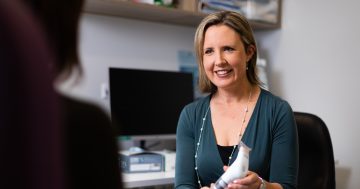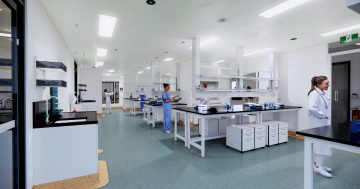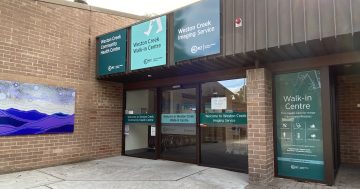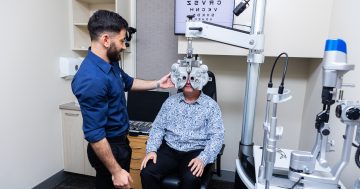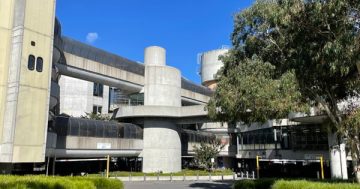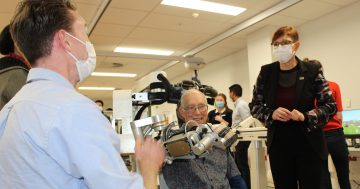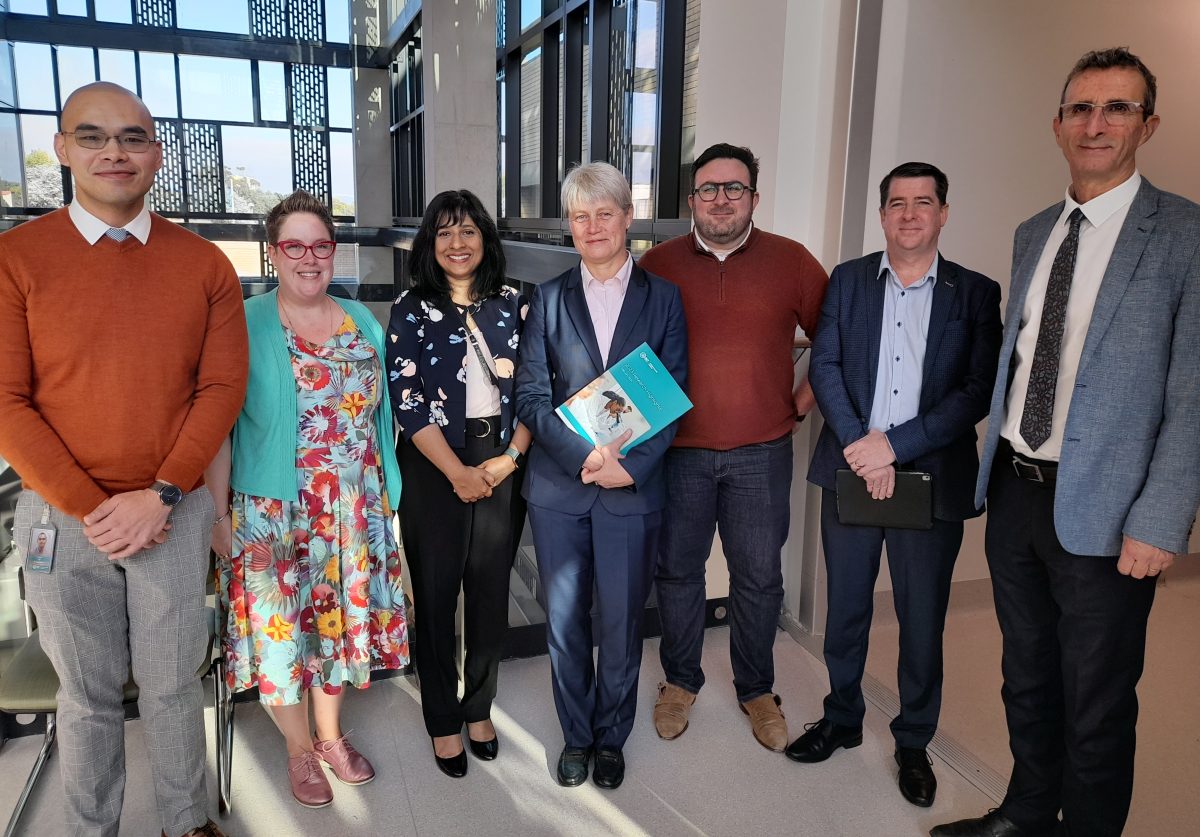
The CHS’ clinical research report has highlighted the work of many, including ANU PhD scholar Jun Ng, Shiloh Middlemiss, CHS clinical researcher Dr Maya Latimer, Research and Academic Partnerships executive director Professor Imogen Mitchell, clinical researcher Professor Mark Polizzotto, UC Faculty of Health Science executive dean Professor Stuart Semple and ANU College of Health and Medicine associate dean Professor Graham Mann. Photo: Supplied.
From setting up a new clinic helping people to age well to saving premature babies overseas, Canberra Health Services inaugural clinical research report has highlighted just what clinicians are achieving in the Territory.
The first CHS strategic research strategy was launched in 2021. Clinicians have been investigating new methods and medicines long before that, but this is the first time the wider community has been able to more fully understand the impact.
Research and academic partnerships executive director Professor Imogen Mitchell explained Canberrans were directly benefitting from having research done close to home.
“I think if you’re in an organization which has a very strong research culture, you’re much more likely to be receiving care that is innovative and cutting edge,” she said.
“What we would like to see is that happening every single day to every single patient.”
There were 619 active research projects, 122 new research projects, 163 active clinical trials and 18 new clinical trails undertaken by clinicians with CHS during 2023.
Of these, 33 clinicians collaborated with 10 academic partners, including the ANU, University of Canberra and University of Sydney.
The CHS Clinical Trials and Research Support Unit expanded its trials portfolio from medical oncology, haematology and cardiology to facilitate the start of trials in several new units, including vascular surgery, general surgery, infectious diseases, anaesthesia and pain management, palliative care, emergency department and psychiatry.
UC Faculty of Health Science executive dean Professor Stuart Semple said the evidence was “very clear” around patients who were admitted to research facilities and health facilities and the benefits they received.
“That evidence is really strong not only for patients but also for clinicians themselves, [as] we find the clinicians will experience a greater job satisfaction, retention, etc,” he said.
“We know that research generates new ideas, new products and processes, new technologies and new policy. If you pull all of that together, what it’s about is patient outcomes.”
One research project highlighted was the establishment of Australia’s first dedicated clonal haematopoiesis clinic, which is focused on managing issues associated with ageing.
Professor Mark Polizzotto is leading the work – accompanied by Dr Maya Latimer, PhD scholar Dr Jun Ng and with support from the ANU – to set up the MOSAIC clinical trial which has the aim of reversing the genetic mutations that accumulate in blood stem cells over time.
Prof Polizzotto said when those mutated stem cells started dominating blood production, this was known as clonal haematopoiesis.
“Many complications of ageing, including blood cancers, infections, and heart disease, are connected to clonal haematopoiesis — which so far hasn’t been able to be treated,” he said.
“We have been able to identify these mutations in at-risk individuals through our screening clinic and support them to manage their risk of complications.”
The MOSAIC five-year trial is being held in collaboration with UNSW, Cambridge University, the University of Auckland and the Cleveland Clinic.
It’s hoped the report’s publication will also boost interest in researching in Canberra and, in turn, attract more experienced clinicians to treat patients, teach upcoming medical professionals and make breakthroughs in the Territory.
“We know health research is instrumental in improving patient outcomes, and the ability to undertake research also makes CHS a better place for clinicians to work,” Health Minister Rachel Stephen-Smith said.
“By further developing its expertise in research, Canberra Health Services will attract even more skilled doctors, nurses and allied health professionals who can actively contribute to innovation and continuous learning.”
ANU College of Health and Medicine partnerships and engagement associate dean Professor Graham Mann said research was one of the reasons he chose to work in the ACT.
“It was that opportunity to see how a focused and dedicated health system, with relatively few partners who can talk to each other and know each other, can commit to the health of their population,” he said.
“[To discover] what we could do that would be different, more advanced, and take us into the future with a health system that really serves our population.”
Overall, CHS CEO David Peffer said creating a strong research profile meant the organisation could become a “beacon” to attract and keep “exceptional” team members.
“2023 was a cracking year for CHS research, and 2024 will be even better.”












